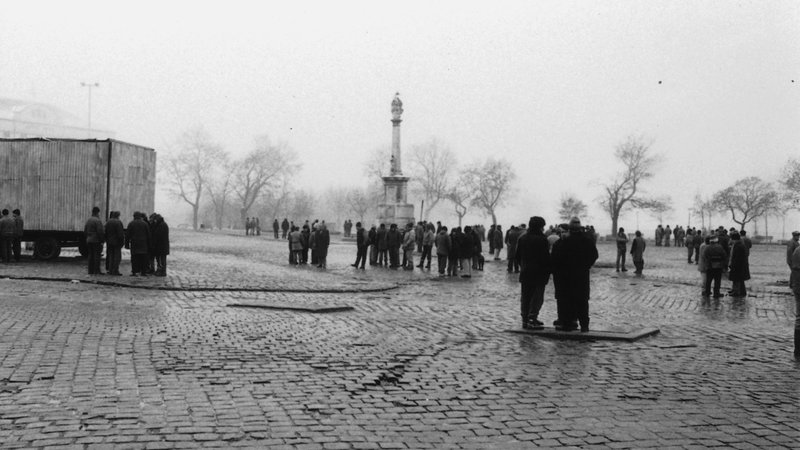
Screened as part of NZIFF 2001
Werckmeister Harmonies 2000
Werckmeister harmóniák
When the circus comes to town in Béla Tarr’s amazing Werckmeister Harmonies, the star attractions are a gigantic dead whale and an invisible but voluble, and deeply anti-social, freak of nature known as ‘The Prince’. They are the catalysts in Tarr’s ambiguous, mesmerising pageant of Enlightenment man versus new barbarians. Some scenes have the graphic impact of brilliant cartooning. Two squalling children in a vast bedchamber seem like monsters of privilege, for example, and the grotesque waltzing of a blowsy ambitious ‘aunt’ and the ‘head of police’ plays like an enactment of the cynical conjunction of law and order. But there are also passages of such monumental, ineffable strangeness in this film that its vision of restive life amidst dilapidation may nag at you for months – possibly years – afterwards. — BG
If cinema has a proper heir to Andrei Tarkovsky, he must be Béla Tarr. Equal parts wild-eyed visionary and committed technician, Tarr’s works of monumental melancholia threaten to overwhelm the viewer’s sensory apparati. With characteristic gloom and fluidity, Tarr sets forth anti-fascist parables on the subjects of order vs. chaos and the individual vs. the masses. In Werckmeister Harmonies, like his previous Sátántangó, a dank Hungarian village stands poised on the brink of an uprising. The director immediately plunges us into a ten-minute take, as young outsider postal worker Valuska (German actor Lars Rudolph) leads an inebriated saloon through an illustration of the operation of the solar system. We also soon discover that a travelling circus has come to town, featuring a mysterious zealot known only as ‘The Prince,’ who possesses the ability to spellbind a town’s dissatisfied residents with the power of his words alone. The Prince remains in the shadows as the residents flock to the town’s centre and shell out what little money they have left to see the star attraction: a giant stuffed whale. But how long will they wait?
Four harsh winters in the making, Werckmeister Harmonies reunites
the creative technical team behind Sátántangó – composer Mihály Víg, cinematographic wizard Gábor Medvigy, and screenwriter László Krasznahorkai, on whose bleak novel The Melancholy of Resistance the film is based. Radically building towards a staggering, ambiguous climax that can only be called transcendent, Werckmeister Harmonies is Tarr’s latest hypnotic masterpiece, a spiritual adventure in time and space that has as its goal nothing short of the enrichment of our souls. — Mark Peranson, Vancouver Film Festival 2000